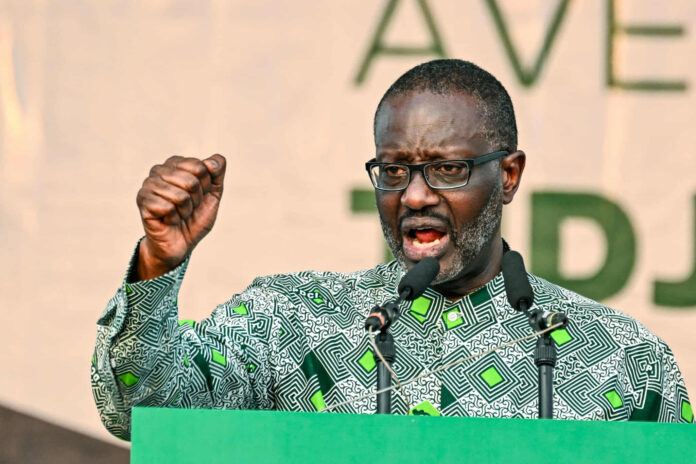With its presidential ambitions curtailed, Côte d’Ivoire’s main opposition party, the Parti Démocratique de Côte d’Ivoire – Rassemblement Démocratique Africain (PDCI-RDA), has launched a nationwide mobilization campaign ahead of the country’s parliamentary elections scheduled for December 27, 2025.
The move follows the exclusion of PDCI-RDA leader Tidjane Thiam from the presidential race, a decision that has intensified political tensions and prompted the party to redirect its efforts toward securing legislative influence.
Mobilization Against Electoral Fraud
In a letter addressed to party activists, Thiam called for a broad-based mobilization, emphasizing the need to safeguard the integrity of the electoral process. “We have every chance if we manage to prevent fraud and cheating,” he wrote, urging supporters to campaign vigorously in constituencies where the party has candidates and to back other opposition contenders elsewhere.
The statement reflects growing concerns within the opposition over the credibility of the electoral framework, particularly in light of the disqualification of both Thiam and former President Laurent Gbagbo. The PDCI-RDA now aims to transform its grassroots network into a decentralized system of electoral oversight to counter what it perceives as institutional advantages held by the ruling Rally of Houphouëtists for Democracy and Peace (RHDP).
Building a Unified Opposition Front
Thiam’s directive also signals a strategic shift toward broader opposition unity. In districts where the PDCI-RDA is not fielding candidates, supporters are being encouraged to rally behind other opposition figures, including those from Gbagbo’s Parti des Peuples Africains – Côte d’Ivoire (PPA-CI).
The PDCI-RDA is working to consolidate the anti-RHDP vote by aligning with other opposition parties under a Common Front initiative.
A stronger opposition presence in the 255-seat National Assembly could serve as a counterweight to the executive branch, offering a platform for increased scrutiny and legislative resistance.
A Test of Political Resilience
The parliamentary elections, brought forward by the Independent Electoral Commission (CEI), are widely seen as a critical test of the opposition’s organizational capacity and cohesion. The PDCI-RDA’s revamped party structure, introduced by Thiam in 2024 to mirror the national electoral map, will be put to the test in what could be a defining moment for the party’s future.
Analysts suggest that the outcome of the December vote may reshape Côte d’Ivoire’s political landscape, shifting the battleground from legal institutions to the ballot box and determining the opposition’s ability to influence governance in the post-presidential era.






















